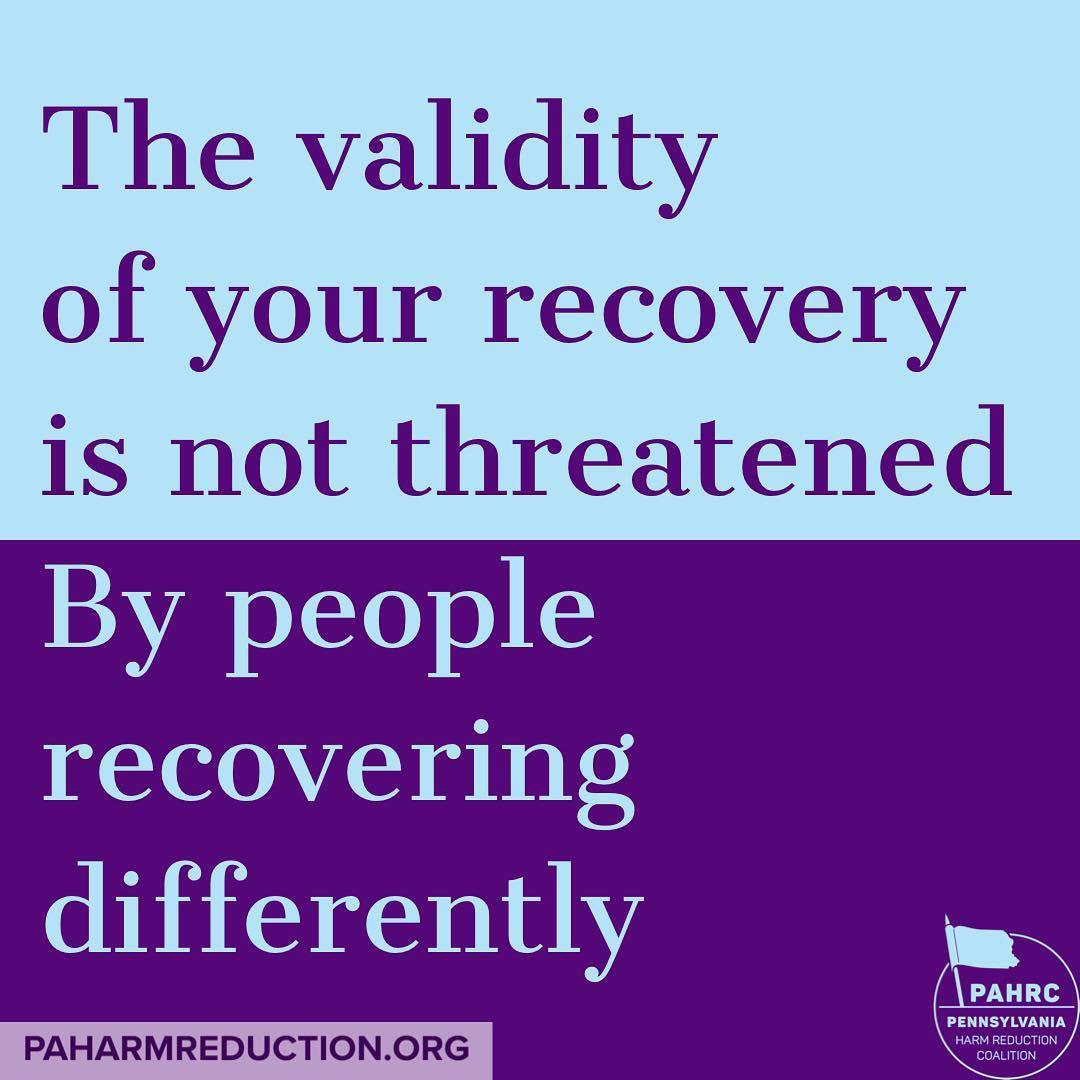National Recovery Month
Hello! Welcome to Overdosed a weekly newsletter on drug policy and people who use drugs by me, Diane Roznowski.
Every September, the Substance Abuse and Mental Health Services Administration (SAMHSA) sponsors National Recovery Month to “increase awareness and understanding of mental and substance use disorders and celebrate the people who recover.”
According to SAMHSA, the term recovery refers to a process of change in which a person can improve their health (physical, mental and emotional) and strive to reach their full potential. SAMHSA identifies four major areas that support recovery:
Health: managing one’s disease(s) or symptoms and making informed, healthy choices that support physical and emotional well-being.
Home: having a stable and safe place to live.
Purpose: conducting meaningful daily activities and having the independence, income, and resources to participate in society.
Community: having relationships and social networks that provide support, friendship, love, and hope.
Recovery is extremely personal and can look very different. It involves continual growth and improvement but like with most chronic conditions recovery can also involve setbacks.
When most people think of recovery they often think of 12-Step programs because they are what is most commonly portrayed on TV and in movies. While 12-Step programs help countless people, they are not the only way to recover and should not be portrayed as such. The majority of 12-Step programs are run by peers and not professionals which can be harmful to some participants. They also are not typically rooted in scientific evidence.
I don’t want to upset people who have found 12-Step programs that work for them. I just hope we as a society start recognizing that there are various other ways to find and maintain recovery and that we can and should allow people to recover in the way that works best for them.
For four years, my sister Emily regularly attended the same 12-Step group. When she learned she was 22-weeks pregnant her doctor insisted she started a medication-assisted recovery process and taking methadone. Her peer-run group’s rules said this wasn’t truly being in recovery despite the fact that methadone and other medication-assisted recovery programs have the highest 5-year survival rates. Emily’s OBGYN and methadone clinic encouraged her to stay on her small dose of methadone for at least one year after giving birth and allowing them to blindly taper her dose. This means only Emily’s healthcare providers at the clinic would know what doses she was taking and when she was being given a placebo. It would have allowed them to know what symptoms and challenges were being caused by the methadone and what could have been caused by a co-occurring mental health disorder. Her dose was so small that it most likely wasn’t actually impacting her, but her counselor strongly recommended against her stopping abruptly. Emily decided not to blindly taper in part because of what she was hearing from people she looked up to in her 12-Step group. She chose to stop taking the methadone and fatally overdosed shortly after stopping taking methadone.
I try my hardest to not blame anyone for my sister’s death but I really wish she would have had opportunities to see recovery in different forms. Whenever I think of recovery I think of this post from the Pennsylvania Harm Reduction Coalition:

Recovery needs to be individualized and we need to allow people to recover in ways that help them the most. Whether that’s attending a 12-Step program or being on a medication-assisted program for the rest of their life, we need to show that recovery looks like many different things and all of them are valid.
Further Reading
Kaiser Health News - Doctors And Nurses With Addictions Often Denied A Crucial Recovery Option
The Verge - Google’s new addiction recovery website is more useful than a Google search
Current Reading
The rise and fall of an Eagle Scout’s deadly fentanyl empire
How To Teach Future Doctors About Pain In The Midst Of The Opioid Crisis
Study: if a family member is prescribed opioids, you have a higher risk of overdose (thank you to my former roommate and good friend Maddie for sending this my way!)
Thank you for subscribing to Overdosed. If you know someone who may be interested in getting it, I would love for you to share it with them (and encourage them to subscribe here!) I’d love to know any questions you have about substance use and drug policy, let me know by replying to this email or by submitting questions here. Additionally, you can find all past newsletters archived here.
Until next time,



